La Gomera, the hikers’ paradise of the Canary Islands. In truth nearly all the Canary Islands offer walking routes that should be in the Champion’s League of walking trails. But where La Gomera beats some of the bigger, and better known islands is that often you can stroll out of your quaint and quirky rural hotel and straight on to the trail.
The route from Vallehermoso to the Enchanted Lake is like that.
On a blisteringly hot August day we stock up with water at the supermarket in the centre of town and head past a children’s play area, where huge statues with generous backsides sit around a concrete den, to reach the starting point of the route.
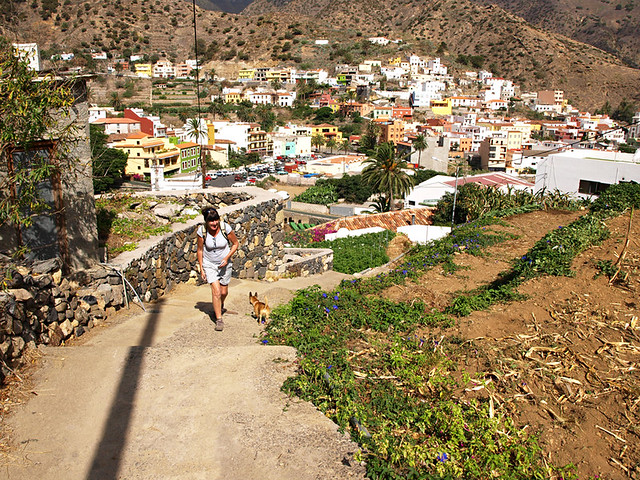
With this route, the hard work is all in the first section. We climb out of the centre of town and into the already hot sunshine, passing a mish mash of houses. Tiny, bored dogs initially yip and yap at our ankles, making a show of protecting their property before capitulating with a frenetic bout of tail wagging as soon as any friendly words are spoken. Although a relatively gentle climb, we’re already sweating before we’ve walked a few hundred metres. Mad dogs, an Englishwoman and a Scot go out in the subtropical August sun.
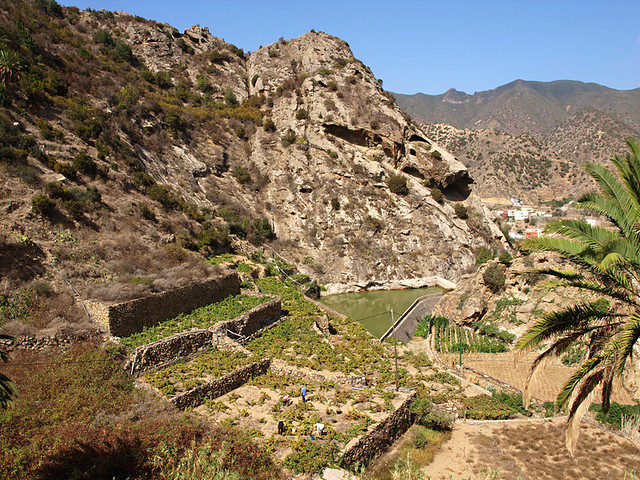
The route continues to ascend and the scatter of houses become even more scattered, replaced by stone cottages with rickety roofs and small terraces where straw-hatted farmers bend double to tend their crops and prune their vines. We pass a typically Gomeran garage, a lean-to whose roof is a thick weave of vines and bulbous bunches of grapes.
The hillsides beyond the town are dry with a few patches of green shrubbery, at this arid time of year they have a North African flavour to them. An embalse (small reservoir) provides the only evidence of life-giving water, its surface is the colour of a bowl of potaje de berros (watercress soup).
As we climb further, the palm groves thicken and the vistas change as the cranium shaped sentinel, Roque Cano starts to peek into our valley. Even though the temperatures are heading skywards, it’s easy walking; the scenery of palms, agave and now pines fuelling our motivation.
The easy walking soon comes to an end as the route becomes bored of flattish walking to suddenly take on more of a vertical affair that’s better suited to goats.
On a temperate winter’s day, we’d call this section challenging. On a searingly hot summer day, after a gregarious evening of socialising, accompanied by a generous home brew testing session, it’s a killer. Andy’s home brew testing wasn’t quite as enthusiastic as mine and where I have to rest every so often to avoid certain death, she copes with the ascent in 30+C temperatures significantly better than I do. I’d like to say it’s a lesson learnt, but we both know it isn’t.
Eventually the path evens out at a rough stone building whose terracotta coloured roof is held on with rocks. Sometimes it can be pumpkins and marrows, which are far more photogenic, but most times it’s rocks.
Our route now crosses a number of barrancos. It’s overgrown, not many people walk this way, and brambles grab sneakily and maliciously at our exposed legs. But the pay off is worth the thin trails of blood.
The overgrown path opens out at a small plateau where a hint of a breeze cools our sodden tee shirts; it’s refreshingly delicious. From here we can see across the north of La Gomera and the army of ravines that deters roads and makes the island such a special place to explore on foot. Vallehermoso, the beautiful valley, lies way below us. Anyone who has sneered and scoffed at its name has not stood where we stand.
Our route descends through more of the same; the wild countryside giving way to terraces again; one has blankets of golden corn cobs laid out along a dry stone wall. Machinery and even vehicles are rarities in this landscape that mostly refuses to lie flat. The only vehicle we see is basically an engine on four wheels with a cabin constructed out of cane.
We emerge from the depths of a ravine and our goal reveals itself ahead. Encantadora – the Enchanted Lake. The emerald green water is still until a couple of ducks take umbrage at our presence and vandalise the surface in their noisy bid to take to the air. On one side is a row of houses, their view of the lake only obscured by proud palms, the source of the island’s sweet and smoky miel de palma. It’s a beaut of a location.
As lakes go, Encantadora isn’t a world beater, it isn’t even a true lake, but on islands where agua is as precious as a sparkling gem, it is a rare and magical sight.
And it does what it says on the packet, it enchants us.
Jack is co-owner, writer and photographer for BuzzTrips and the Real Tenerife series of travel websites as well as a contributor to online travel sites and travel magazines. Follow Jack on Google+

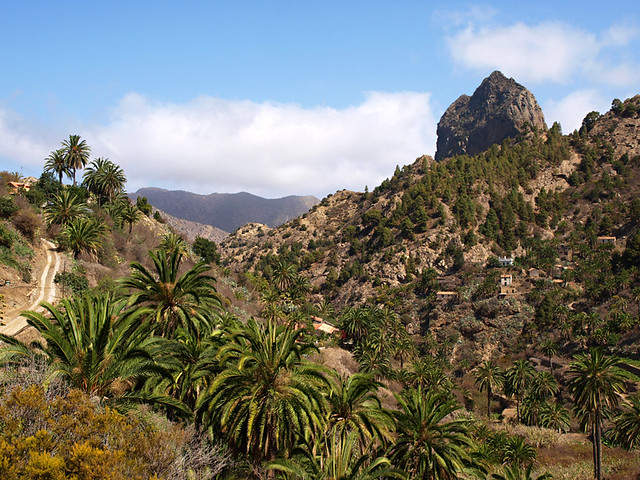
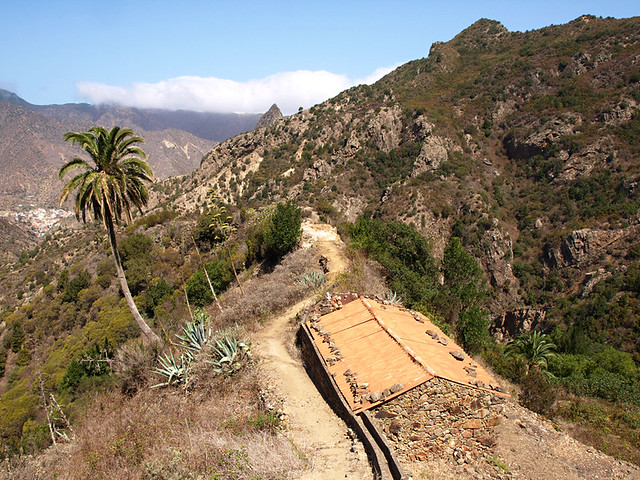
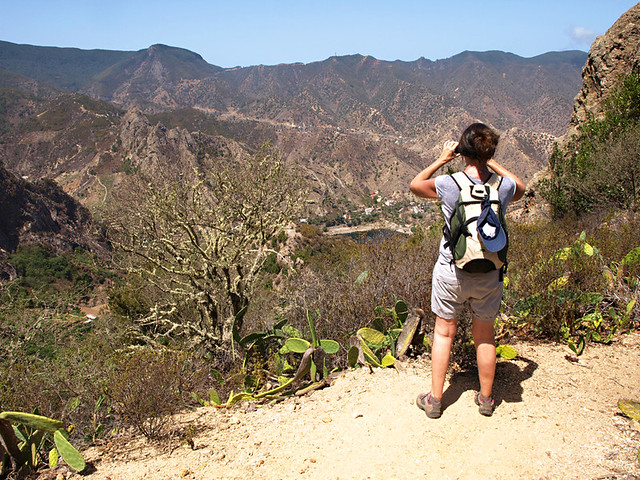
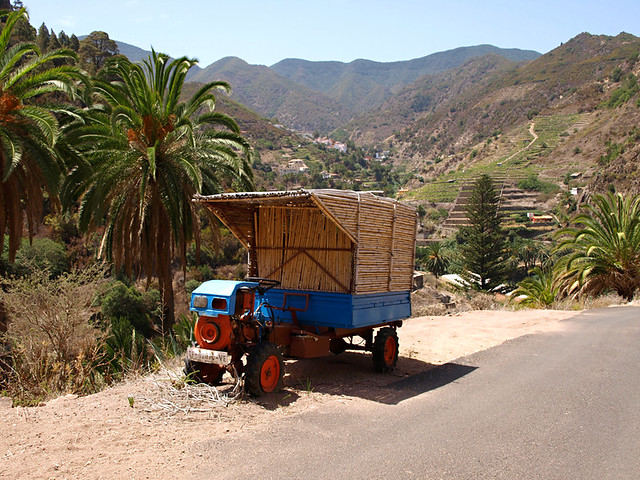
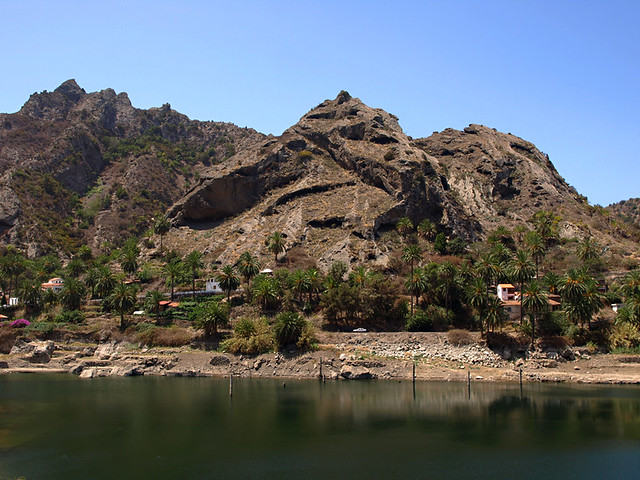



It’s best to go in Spring – when the island is beautifully green, wild flowers are abundant and the temperatures are far more reasonable for walking. I’ve walked most of the island as we research and publish walking guides and detailed mapping including for La Gomera. It’s good that you enjoyed it – if you can, go back in Spring. 🙂
Totally agree. Fabulous walking in spring.
In this case we didn’t have much of a choice. We had walked across La Gomera in the spring checking walking route directions for a UK specialist travel company we work with and then the forest fires changed the game a bit shortly before some customers were due to arrive in late September